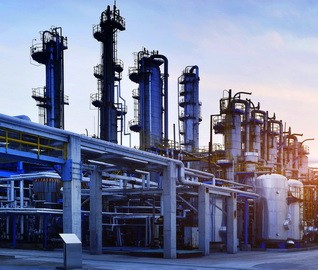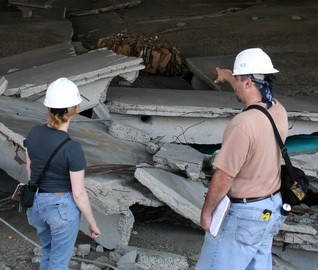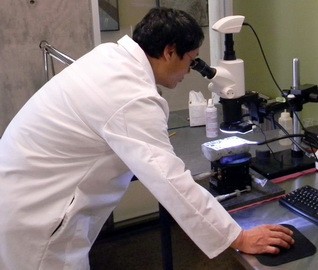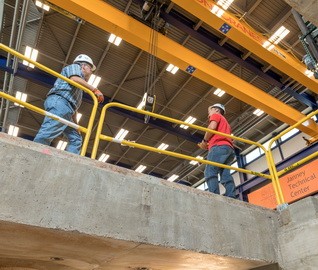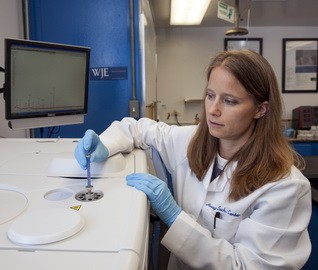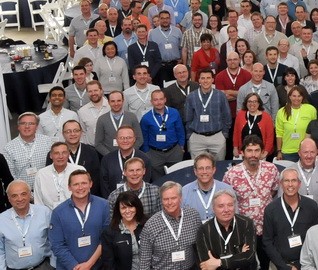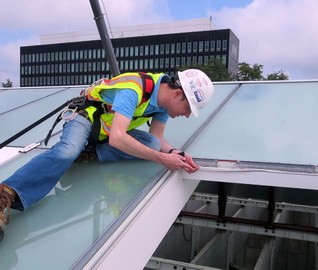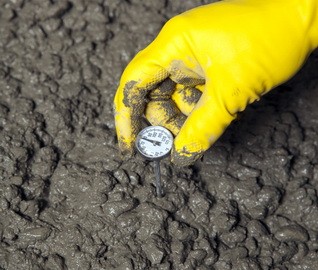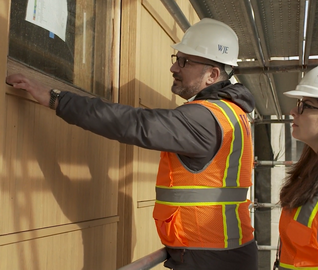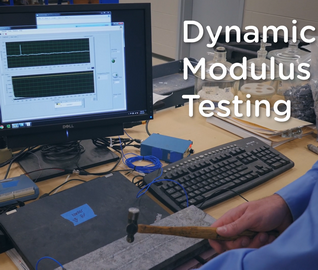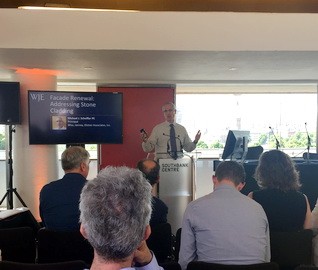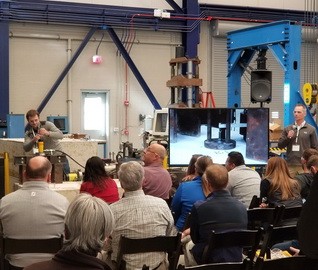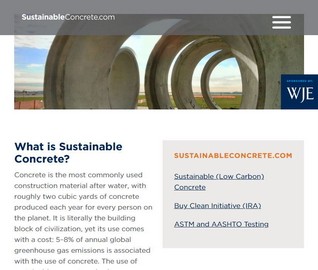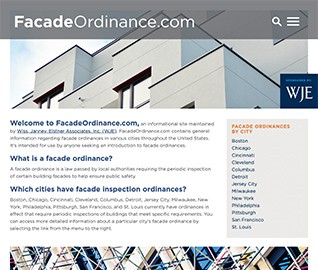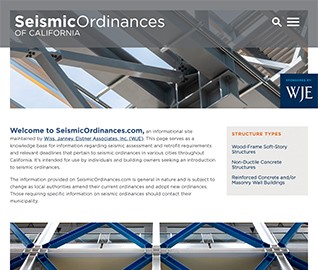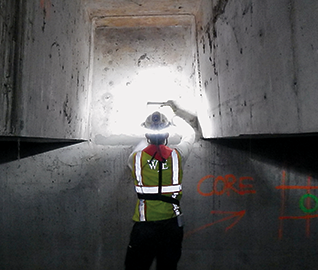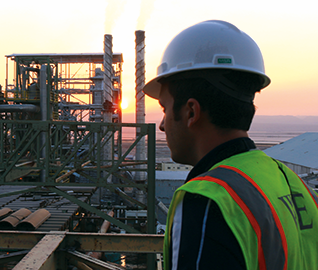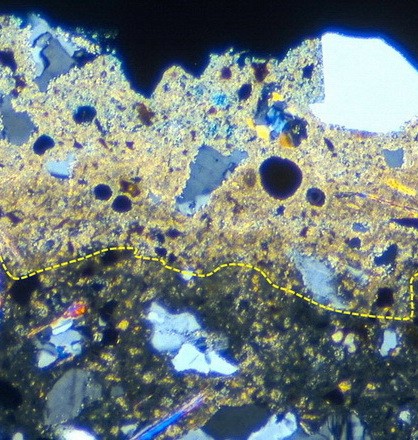
Moderately alkaline pore solutions migrating through carbonated portland cement paste in contact with embedded steel can destabilize the protective passive film on the surface of steel and initiate corrosion.
Pore solutions in portland cement paste are naturally highly alkaline, with pH typically between 12 and 13. Highly alkaline pore solutions in concrete, mortars, and grouts are predominantly maintained by dissolution of calcium hydroxide—Ca(OH)2 which is commonly referred to as portlandite—in hydrated portland cement paste. These solutions promote the formation of a passive and protective film on the surface of embedded steel.
In this WJE Primer, petrographers Hugh Hou and George Reo discuss the significance of concrete carbonation and how to accurately measure carbonation levels.
RELATED INFORMATION
-
 Xiaoqiang Hou, Associate PrincipalWJE Northbrook MORE >People | Xiaoqiang Hou, Associate Principal
Xiaoqiang Hou, Associate PrincipalWJE Northbrook MORE >People | Xiaoqiang Hou, Associate Principal -
 George Reo, Associate IIIWJE Northbrook MORE >People | George Reo, Associate III
George Reo, Associate IIIWJE Northbrook MORE >People | George Reo, Associate III -
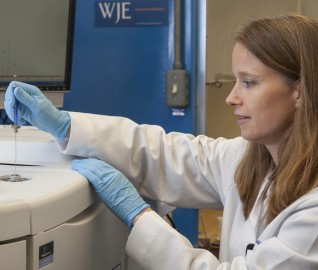 Our materials scientists provide comprehensive consulting services for the evaluation and... MORE >Services | Materials Evaluation and Testing
Our materials scientists provide comprehensive consulting services for the evaluation and... MORE >Services | Materials Evaluation and Testing -
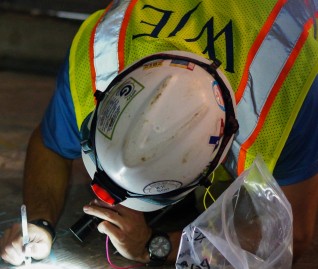 Clients rely on our experience and laboratory capabilities to develop innovative solutions to... MORE >Services | Materials Engineering
Clients rely on our experience and laboratory capabilities to develop innovative solutions to... MORE >Services | Materials Engineering


